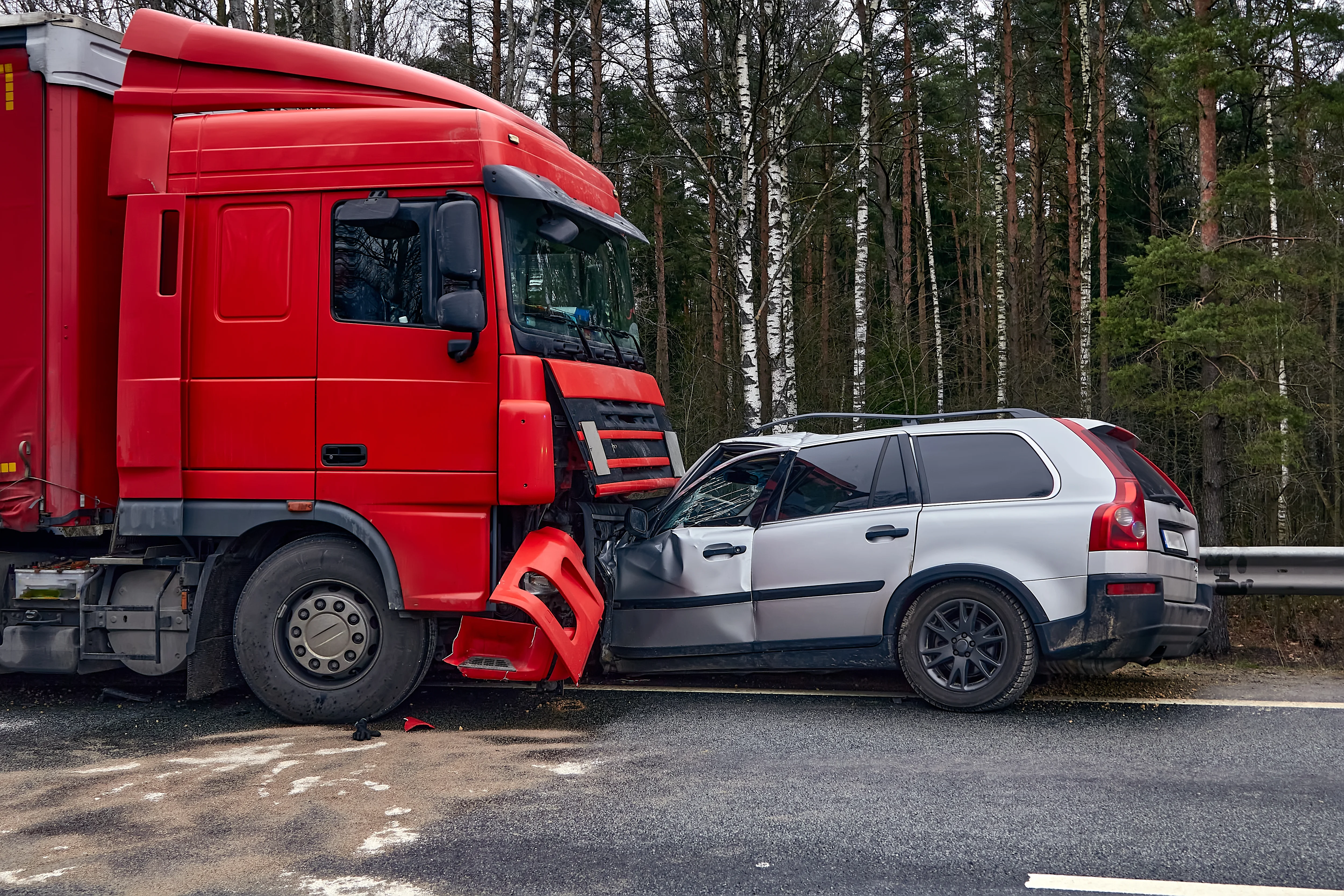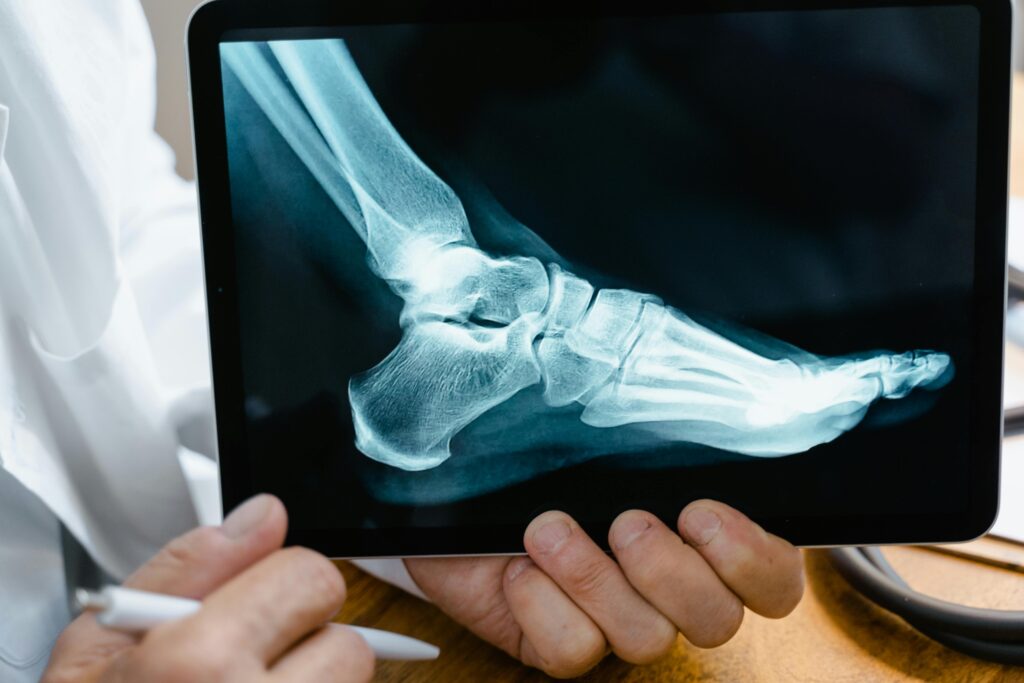When Will You Get Paid After a Colorado Accident Claim
After an auto accident in Colorado, many injured drivers and passengers ask the same question: how long does it take to get paid after filing a claim? The answer depends on several factors, but most claims take anywhere from a few weeks to several months to resolve, depending on the case’s complexity and how cooperative the insurance company is. Unfortunately, insurers often stall payments or offer quick, lowball settlements, especially when you’re navigating recovery alone.
In Colorado, the insurance companies have tight timetables to review and respond to claims. But most wait until there is pressure from the courts before they provide reasonable payments. In a wide-ranging report by the National Association of Insurance Commissioners, most policyholders do not know how long it takes for the process to be extended without active intervention.
At Levine Law, we move fast and aggressively so that our clients don’t get in the path of unnecessary delays. We’ve recovered millions of dollars for accident victims across the Front Range, from I-25 accidents in Denver’s downtown to I-70 wrecks during winter driving to Vail wrecks. The moment you call our team, we begin building leverage that forces insurance companies to hear your case.
If you’ve been hurt in a car collision and you’re wondering how quickly your Colorado accident claim will settle, you don’t have to guess. Our experienced team will walk you through your timeline, protect your rights, and fight for maximum and fair compensation along the way.
How Long Does a Colorado Injury Claim Take to Pay Out
The time it takes to receive payment after an accident claim in Colorado can vary widely depending on the circumstances of the crash, the severity of injuries, and the behavior of the insurance company. While some claims resolve within 60 days, others can extend over a year if litigation becomes necessary. Victims in cities like Aurora, Boulder, and Greeley often face unique timelines based on local court schedules, traffic patterns, and insurance coverage issues.
By understanding each phase of the personal injury claim process, accident victims across Colorado can better anticipate what to expect and how to respond if the insurance carrier causes delays. Below is a detailed breakdown of the standard claim lifecycle, based on our experience handling thousands of auto accidents statewide.
Phase One Starting the Colorado Auto Claim Process After the Crash
After a motor vehicle accident, the claim process begins with essential steps that must be completed immediately
You must first seek medical attention and report the accident to local law enforcement. Next, notify your insurance company and begin documenting evidence such as vehicle damage, road conditions, and witness details. This phase lays the foundation for a strong case and can begin as soon as the day of the crash.
The Colorado Division of Insurance requires all drivers to carry minimum liability coverage, but insurers often challenge liability even in straightforward crashes. As a result, we recommend beginning your legal process as early as possible. Learn more about coverage requirements from the Colorado Department of Revenue.
Gathering and Preserving Critical Evidence
Delays in collecting evidence can give insurance carriers an excuse to dispute your claim
Photos of the crash site, police reports, medical records, and witness contact information are vital to avoid losing important details. Evidence begins to fade within hours after an accident. Snow, weather, and traffic in mountain towns like Golden or Dillon can quickly erase skid marks and debris, making preservation urgent.
Our firm ensures nothing is lost. We dispatch investigators to gather all relevant materials quickly, often within 24 to 48 hours of being retained.
Coordinating with Insurance Adjusters
Contact with adjusters should be limited and handled carefully to avoid compromising your rights
Many insurers ask misleading questions or pressure victims into giving recorded statements. Their goal is often to reduce payouts by finding any inconsistencies. That is why we strongly advise against direct conversations with insurance companies without legal counsel.
Instead, we communicate on your behalf and ensure all documentation is properly submitted to initiate the claim. This prevents critical delays in phase two.
Phase Two Ongoing Medical Treatment and Recovery Period
Before your claim can be valued accurately, your recovery must reach a stable point called maximum medical improvement
This means your doctors believe your condition is no longer expected to improve significantly, and future treatments can be reasonably estimated. Until then, settling a claim would risk undervaluing ongoing care like physical therapy, surgery, or prescription costs.
Duration of Treatment Affects the Settlement Timeline
Claims involving fractures, spinal injuries, or traumatic brain injuries often require months of rehabilitation
Victims in areas like Longmont or Castle Rock frequently need to see orthopedic and neurological providers before recovery stabilizes. Some treatment plans span six months or more, which directly impacts when the settlement phase can begin.
Our legal team stays in regular contact with your medical providers to monitor progress and prepare for the next phase efficiently.
Documenting Lost Wages and Future Medical Costs
Full compensation includes lost income and expected future care, both of which require extensive documentation
If your injury has forced you off work or led to permanent physical limitations, we work with medical professionals and vocational consultants to calculate these losses. This ensures your demand reflects the true cost of your injury.
Insurers often ignore these damages unless fully documented. We prepare comprehensive reports to prevent that outcome.
Phase Three Formal Demand and Settlement Negotiation Stage
Once treatment ends, we prepare a full settlement demand and begin the negotiation phase with the insurance company
This is where the insurer reviews your claim and issues a response, typically within 15 to 30 days. In more complex cases, multiple rounds of negotiations are necessary before a fair offer is made. During this period, we remain persistent and organized, applying pressure based on the strength of your documented evidence.
According to a recent report by the Insurance Information Institute, claims with legal representation settle for significantly higher amounts than those handled alone. We use this leverage to maximize your result.
Common Tactics Insurance Companies Use to Delay Payment
Carriers often request repeated paperwork or use ambiguous policy language to justify delays
We frequently see adjusters claim they need additional time to evaluate injury severity or repair estimates. These delay tactics are designed to frustrate victims into settling quickly for less than they deserve.
When this happens, we respond with firm deadlines and prepare the claim for litigation if needed.
How Long Settlement Negotiations Usually Last
Negotiations can take between 30 and 90 days for most non-litigated claims, but high-value cases may take longer
Settlements involving commercial vehicles, multiple injured parties, or underinsured motorist coverage can extend the process by several months. In these situations, we continue to push for resolution while preparing for trial as a parallel track.
The negotiation stage is the most critical point to secure full recovery. We never recommend settling until every damage is accounted for and future care is confirmed.
Phase Four Filing a Lawsuit in Colorado Courts When Insurers Refuse to Pay
If insurers fail to offer a fair settlement, we move forward with filing a personal injury lawsuit in state court
Litigation is sometimes the only option when negotiations stall. Filing suit initiates the discovery process, which includes depositions, medical exams, and document exchanges. Most cases still settle before trial, but litigation adds several months to the claim timeline.
Courts across Colorado, including those in Jefferson, Denver, and Adams Counties, have varying schedules that can affect how quickly a case proceeds. Regardless of location, we remain aggressive and consistent throughout the process.
How Lawsuits Can Increase Settlement Offers
Insurers are more likely to pay full value once a lawsuit shows you are prepared to go the distance
Once discovery begins and depositions are scheduled, many carriers re-engage in meaningful negotiations. Our reputation for thorough litigation preparation often drives faster and better outcomes.
According to Harvard Law’s Program on Negotiation, filing a lawsuit can result in increased compensation due to added legal pressure. We use this to your advantage when negotiations stall.
Timeline for Colorado Injury Lawsuits After Filing
The litigation phase can take six months to over a year depending on court availability and case complexity
We remain in regular contact with clients during this time, providing updates and answering questions throughout the process. Trials are rare but can extend the timeline further. We prepare every case as if it will go to trial, which increases pressure on insurers from day one.
By fully understanding this four-phase timeline, victims across Colorado can approach their case with realistic expectations and a strategy focused on success. In the next section, we will explore why rushing your payout may cost you far more in the long run.
Fast Colorado Claim Payouts Near Littleton Often Cost More Than They Save
Many injured victims from Littleton to Lakewood ask how long it takes to get paid after a Colorado car accident. While quick payouts can seem appealing, they often result in smaller settlements that fail to account for long-term needs. Insurance companies take advantage of this urgency, offering fast checks that ignore ongoing medical care, future wage losses, and pain-related damages.
Research from the University of Michigan Injury Center shows that early settlements are frequently linked to undercompensation, especially when victims accept payment before completing treatment. At Levine Law, we strongly recommend waiting until your injuries stabilize and all costs are clear. Patience can mean the difference between a short-term fix and long-term financial security.
Insurance Companies Push Quick Settlements to Limit Their Exposure
Carriers act fast when they want to avoid paying full value for a serious Colorado accident claim
Within days of a crash, many victims receive aggressive calls from adjusters offering to settle. These offers rarely cover hospital bills from places like Swedish Medical Center or rehabilitation costs at Craig Hospital. The insurer’s priority is limiting liability, not helping your recovery.
We step in immediately to block these pressure tactics. Our firm ensures you understand what your case is truly worth and why holding out for the right moment matters.
How Early Payouts Fail to Cover Long-Term Medical Needs
Quick settlements ignore your body’s timeline for healing and your doctor’s long-term projections
Injuries like herniated discs, ligament damage, or closed head trauma often worsen weeks after an accident. If you accept a settlement before your condition peaks, you waive the right to seek further compensation. The result is a payout that leaves you covering future expenses out of pocket.
Low Settlements Ignore Lost Income and Career Disruption
Missed workdays and permanent job changes are not always obvious at the start of your recovery
We often see clients who initially thought they would return to work within days but later discovered long-term impairment. Whether you are a construction worker in Commerce City or a teacher in Centennial, your earning ability may shift dramatically due to pain, fatigue, or physical restrictions.
Quick settlements rarely account for these changes. We work with employment analysts to document wage loss thoroughly before any settlement is finalized.
Waiting to Settle Usually Leads to Better Compensation
By extending the process until recovery is clear, victims usually walk away with more money and fewer regrets
Although it can feel frustrating to wait, time allows for more accurate damage assessments, stronger negotiations, and the chance to hold insurers accountable. Most clients who reject early offers receive far higher settlements later, even after deducting legal fees.
A recent study by the American Bar Association found that legal intervention often results in more than double the payout compared to unrepresented claims. Our legal team uses this leverage to push insurance companies toward proper compensation.
Strategic Delays Help Build Ironclad Cases
Delays caused by investigation and documentation serve your case, not the insurer’s bottom line
Our firm gathers medical evaluations, future care projections, expert reports, and lost income documentation during this period. These materials make your demand impossible to ignore. Strong evidence leads to stronger offers.
Rather than rush a payout that covers only part of your loss, we use the time to secure results that reflect the full impact on your life and your future.
Smart Settlements Close the Door on Future Risk
Once a release is signed, there is no second chance to claim damages in Colorado
Every settlement includes a liability release, which means the insurance company never pays another dollar, no matter how badly your injury worsens. That is why we carefully time each settlement based on medical stability, wage data, and legal analysis.
Patience and preparation consistently lead to better outcomes than speed. In the next section, we will explain how Colorado insurance laws affect payout delays and how to respond when insurers try to slow the process.
Frequently Asked Questions About Colorado Claim Payout Timelines From Highlands Ranch to Westminster
Understanding how long it takes to get paid after a Colorado accident claim can feel overwhelming, especially when bills are piling up and the insurance company remains silent. Below, we answer the most common questions we receive from injured drivers, passengers, and pedestrians throughout Colorado communities including Highlands Ranch, Westminster, Arvada, and Aurora. These answers are designed to help you make confident decisions and avoid costly mistakes that delay compensation.
Each answer uses real-world experience, Colorado-specific laws, and national research to give you clear direction. If your question is not answered below, call Levine Law at 303-835-4910 for immediate help.
How Long Does It Usually Take To Get Paid After A Car Accident In Colorado
Most Colorado personal injury claims settle within two to eight months after medical treatment is complete
The timeline depends heavily on how soon treatment finishes, how cooperative the insurance company is, and whether litigation becomes necessary. Some simple claims with clear liability may resolve within 60 days. Others that involve serious injuries, disputed fault, or uninsured drivers can take 12 months or longer.
According to a claims study by the National Association of Consumer Advocates, early legal intervention helps shorten timelines and increase payouts. That is why working with an attorney early is key.
Can I Get Paid Faster If I Settle Before Finishing Treatment
Yes, but you will likely receive far less than what your case is worth
Insurance companies often offer fast settlements to close the claim before your full damages are known. These payouts typically ignore future medical needs, lost earnings, and long-term pain. Once you accept an offer, you cannot go back for more.
We strongly recommend completing treatment or reaching maximum medical improvement before accepting any payment. This protects your financial future and ensures you do not leave money on the table.
What Should I Do If The Insurance Company Is Delaying My Claim
You should document all communication and contact a legal team that understands Colorado claim delays
Insurers use a range of tactics to delay payment, such as repeatedly requesting documents, disputing medical records, or blaming other drivers. These stall tactics are meant to pressure you into accepting a lower amount.
Colorado law protects victims from unreasonable delays. Under state regulations, insurers must respond to claims within a reasonable timeframe. If they do not, we hold them accountable and force timely decisions. Read more from the Colorado Division of Insurance about your rights.
Will My Claim Take Longer If I Was Partially At Fault For The Crash
Possibly, but you can still recover compensation even if you share fault under Colorado law
Colorado follows a modified comparative fault system. As long as you are less than 50 percent responsible, you can receive damages. However, your compensation will be reduced by your percentage of fault. For example, if you are 20 percent at fault, your payout will be reduced by that amount.
Determining fault can take time and lead to delays. That is why we immediately gather accident reports, eyewitness statements, and traffic camera footage to build a strong liability case from the beginning.
Do Colorado Insurance Laws Affect How Long My Claim Will Take
Yes, Colorado insurance laws and deadlines directly impact your claim timeline and your ability to collect compensation
State law requires insurers to investigate and make a decision on a claim within a reasonable period. If they fail to do so, they may be in violation of Colorado’s unfair claims practices statutes. We use these laws as leverage to prevent unnecessary delays and to push for full payment on your behalf.
In some cases, we also file complaints with the state if bad faith behavior occurs. To learn more about these regulations, visit the Colorado General Assembly’s legislative database.
How Long Do I Have To File A Lawsuit If My Claim Does Not Settle
In most cases, you have two years from the date of the accident to file a personal injury lawsuit in Colorado
However, if the crash involved a government vehicle or public employee, the deadline can be as short as 180 days. Missing these deadlines permanently bars you from collecting compensation. That is why we evaluate every claim timeline at the start and file quickly when negotiations stall.
We also advise filing suit early when insurers refuse to negotiate fairly. This puts pressure on them to settle and avoids running out the clock.
Can I Still Get Paid If The Other Driver Was Uninsured
Yes, but your recovery may depend on your own uninsured or underinsured motorist coverage
Many Colorado drivers carry uninsured motorist policies without realizing it. These policies provide financial protection when the at-fault driver cannot pay. If you have this coverage, we can file a claim with your insurer and recover the same types of damages as if you sued the at-fault driver.
Insurers often treat these claims with increased scrutiny. We ensure your own insurance carrier does not delay or deny what they owe.
Speak With a Colorado Legal Team That Gets You Paid Without Delay
Waiting on an insurance payout after a Colorado car accident can feel like a second injury. Medical bills stack up, missed paychecks pile on, and the stress only grows when answers are hard to find. At Levine Law, we move fast, fight hard, and refuse to let insurers stall your recovery.
Whether your crash happened on I-225 near Aurora, along Highway 36 in Broomfield, or on a snowy stretch of I-70 heading into the mountains, we know the terrain, the courts, and the tactics used by insurance carriers across Colorado. With millions recovered for injured clients statewide, our team is committed to helping you get the full compensation you deserve without unnecessary delays.
If you’re asking how long it takes to get paid after a Colorado accident claim, let us answer that directly and take the pressure off your shoulders today. We offer free consultations and handle every case on a contingency fee basis, so you pay nothing unless we win.
Call Levine Law now at 303-835-4910 or submit your case online and get your recovery timeline started
Let us take action today so you can focus on healing tomorrow.
Practice Areas
Trust Levine LawWith Your Personal Injury Claim
If you or a loved one have been injured, Levine Law will fight for you every step of the way. We will give our all to secure the compensation you rightfully deserve.
Contact usfor a free consultation.
Phone: (303) 951-4810






